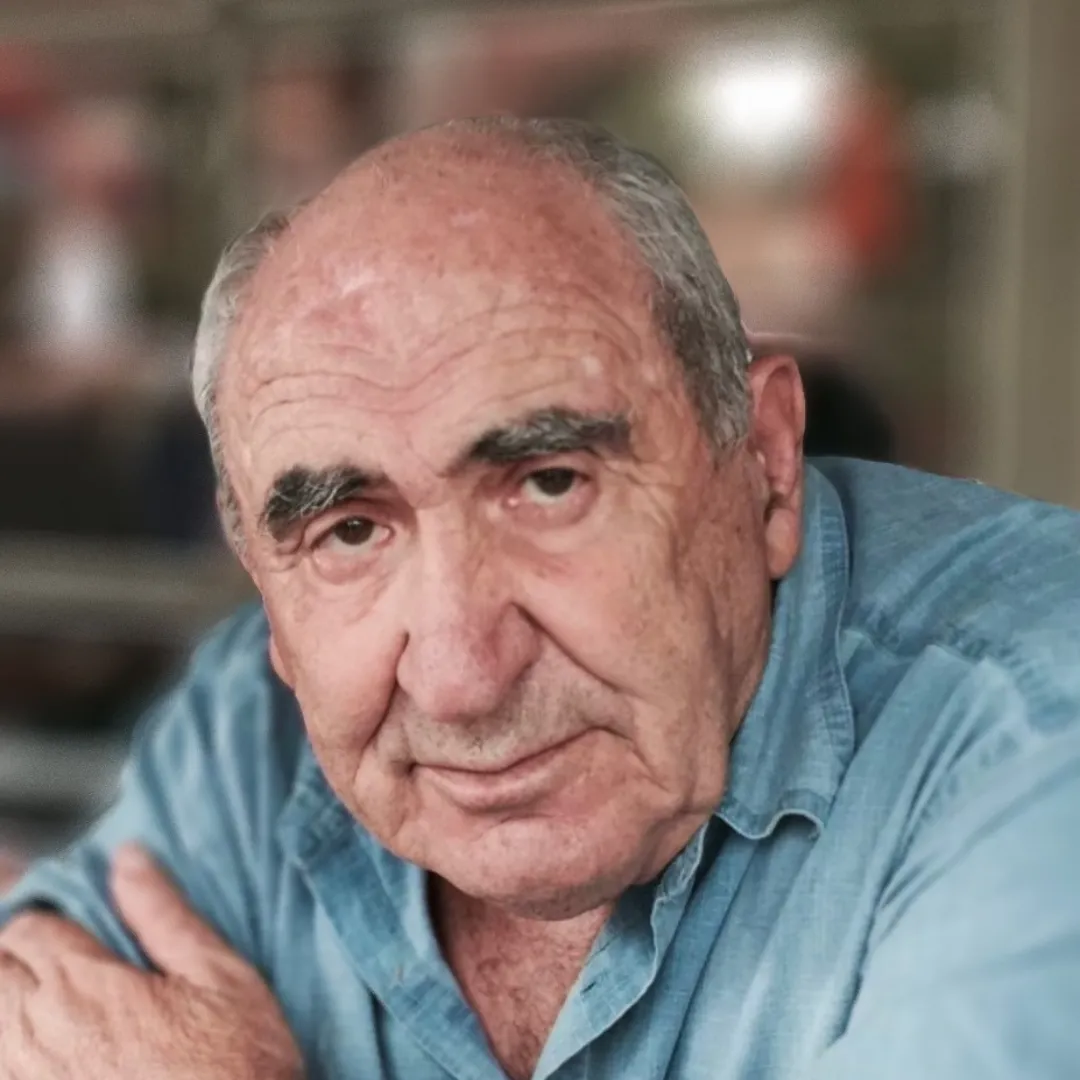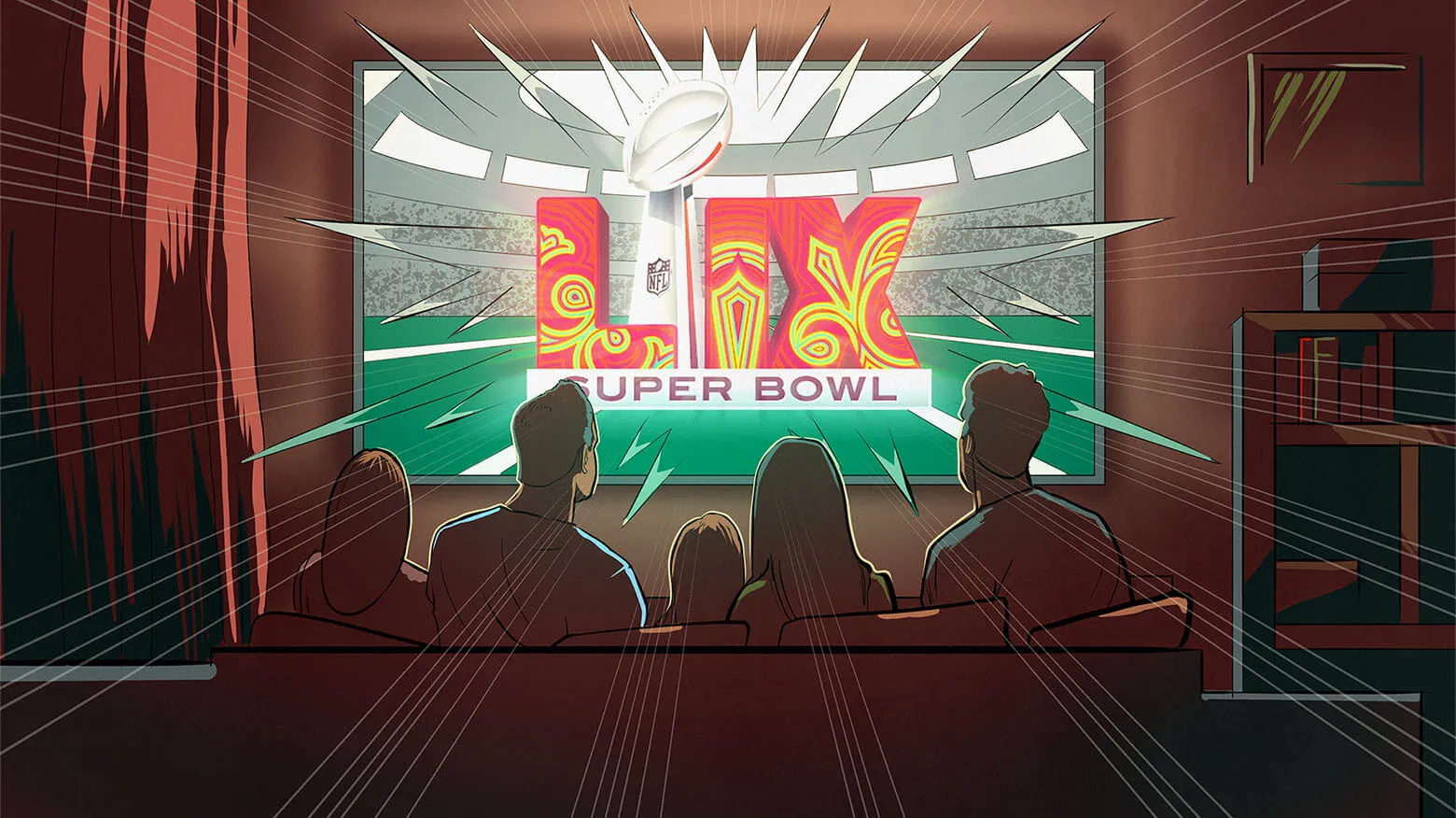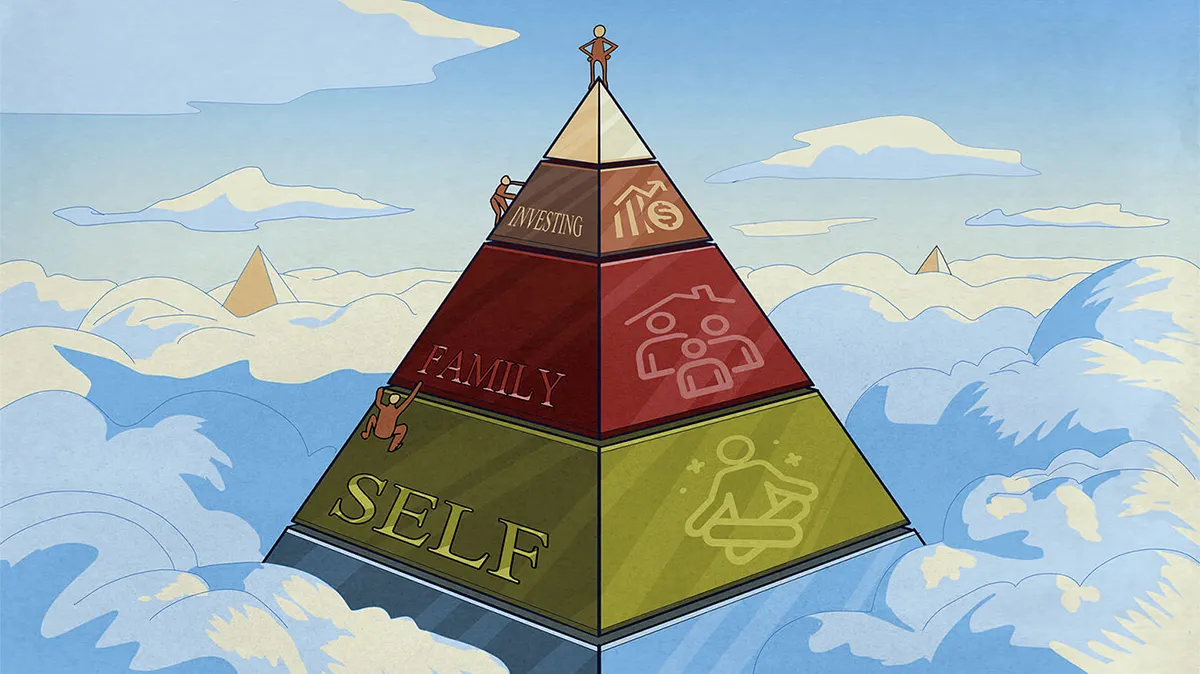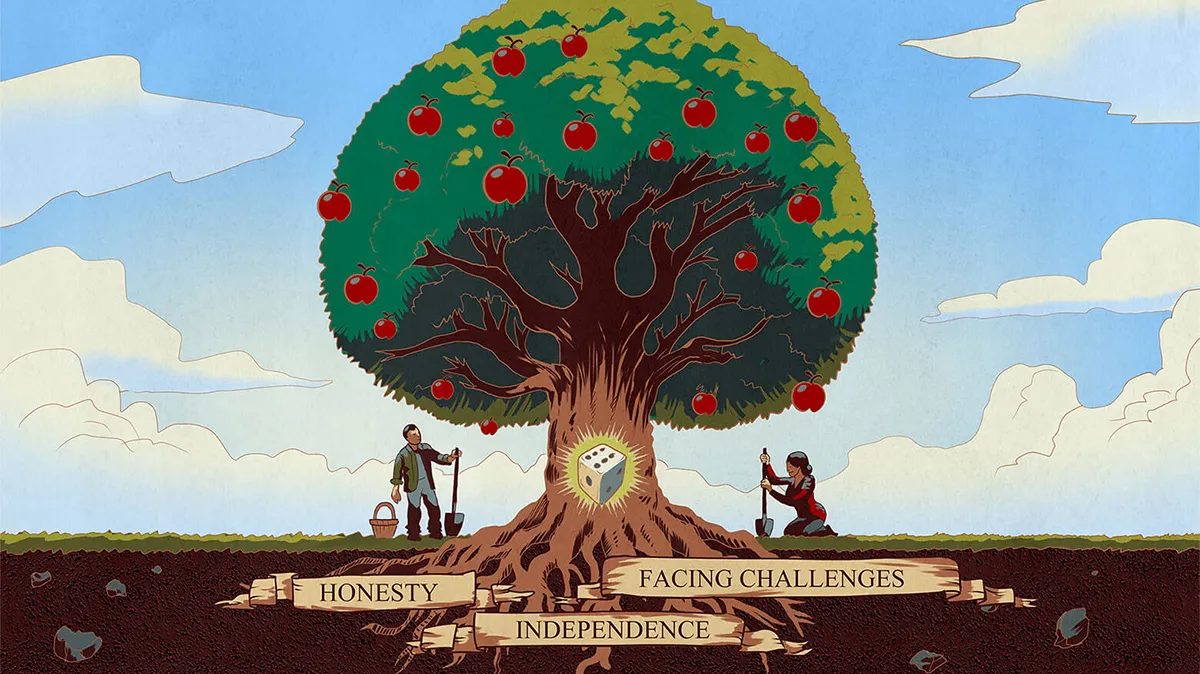Article available in Russian here and Spanish here.
My father, Naum Katsenelson, passed away on August 10, 2023.
I spent weeks trying to write about my father, but I failed miserably. As a writer, I have learned that there is no such thing as writer’s block; either your idea is not fully developed and ready to come out, or there is a conflict between what you want to say and what appears on your pages. In this case, it was the latter. I realized I wanted to talk about him, but I kept coming back to myself. No one has had a greater impact on who I am today than my father. My mother, who dedicated her short life to her family, passed away when I was 11. Since then, my father has been both a mother and a father to me.
A life worthy of examining
As I was writing this essay, I kept noticing that instead of writing about my father’s life, I was turning the piece into a “how to” essay. Aristotle said, “An unexamined life is not worth living.” Well, my father led a well-examined life that is worth learning from.
When I think of my father two nouns come to mind: warmth and kindness. Of course, he was also so much more.
A true renaissance man, he excelled in both science and art. Archimedes said, give me a lever and a firm place to place it and I can move the world. Give my father paper and pen and he could explain to you anything from the laws of thermodynamics or how the GPS satellite system worked so that even a five-year-old could understand.
My father taught and was adored by thousands of students at the Murmansk Marine Academy; he was one of the most respected professors at the academy. Many professors at Soviet universities had a god complex and were condescending towards their students, an attitude that I was often a victim of in both high school and college. However, the person I saw at home was the same person his students saw in the academy: He had a terrific sense of humor, he cared, and he treated everyone with respect. He was always prepared; armed with chalk and a blackboard, he could unfold complexity into something simple and understandable.
It is unsurprising that many of his students remained his friends, and some even close friends, for decades after graduating.
He had boundless curiosity, lacked ego, and genuinely loved learning — a true student of life. Even when he was well into his 70s, after being an accomplished artist who had painted for 70 years, he still took master classes from artists he admired. To the whole family’s astonishment, also in his late 70s, he enrolled at a local college to improve his English.
Not your typical university professor
Bravery is not usually the first word that comes to mind when you think of university professors.
A few years before we left Russia, I was ditching school, something I excelled at, and came home for lunch. As I was heading back to school, I saw smoke coming out of a neighbor’s apartment. The family that lived in that apartment had seven kids. My father lovingly called them the garlic cloves — he could never tell those kids apart. I ran upstairs and told my father about the smoke. Without hesitation, he broke the door open and rushed into the fire-engulfed apartment. He checked every room and brought out two kids who were hiding under blankets. These two human beings are alive today because of his selflessness and bravery. He received a medal, “For Saving Children in a Fire.”
This happened 37 years ago, but I don’t think a single friend of his knows about it.
I don’t think my father read the Stoics, but he led the life of a Stoic. Instead of quoting Seneca or Epictetus, he often cited words from a popular Russian song that loosely translate as “nature doesn’t have bad weather; you can find beauty in all weather.” We lived in Murmansk, which is located above the Arctic Circle. The weather was often objectively cold and subjectively miserable, but my father did not see it that way; he’d quote that song and find beauty in Mother Nature’s daily gifts.
I understand now, after studying Stoic philosophy, that he practiced the dichotomy of control: You cannot control the weather, but you can control how you respond to it. And he also practiced reframing — the weather is what it is; good or bad is our interpretation of it.
Both of my parents believed that you could sculpt your own character and train yourself to overcome adversity with grace. My mother and father were ice swimmers; they swam in a frozen lake when it was -30 degrees outside. When we went cross-country skiing, my father would ski without a shirt.
This is merely speculation on my part, but I don’t think he wanted to run into that burning apartment any more than the other neighbors did. But when he was stepping into a frozen lake wearing just his swimming trunks while the people around him were wearing burkas, he was training himself to recognize fear and then overcome it. He often referred to this as “pushing through [the feeling of] I don’t want to” (Делать через не хочу).
Loyalty without bounds
My father’s best friend, who was also a professor at the university where he taught, inherited books of the dissident writer Aleksandr Solzhenitsyn from his brother. At the time, these books were prohibited in the Soviet Union and ownership of them was a crime. Someone ratted out his friend. When the university held a vote to fire him, the only hand that went up to object was my father’s. In Soviet Russia, this vote came with possibly grave consequences.
A day after her 50th birthday, my mom was hospitalized with a crushing headache and a few days later was diagnosed with brain cancer. My father fought hard for her. Somehow, he managed to get a famous neurosurgeon from Saint Petersburg to come to Murmansk to perform an operation. Despite the surgeon’s fame, the operation was not successful. My father, a man of science, held on to the last threads of hope, even seemingly absurd ones. He read an article that water that had been passed through a device containing electricity and salt had helped some people with cancer, so he constructed the device and made the water for my mother. This contraption did not change my mom’s fate. He fought for my mother and was with her until she took her last breath.
Selflessness
In 1991, after the Berlin Wall fell, my father’s younger sister, who had left Moscow in 1979, invited our family to come to the US. I only understand today, as an adult and a parent, the sacrifice my father made for my brothers and me. He was 58 years old. He studied English diligently, but there was no way he could learn English well enough at that age to teach at a university.
I remember him reading an essay out loud to me in the late 1980s, about a professor from Moscow University who moved to Brooklyn and became a taxi driver to earn extra money to pay for his dental work. By moving to the US, my father was facing a highly uncertain future with many possible outcomes, where he — a highly respected professor who loved teaching and had a great life in Murmansk — might have had to start driving a taxi or washing dishes to support his family.
Though he became a successful artist in the US, that was not even in the realm of possibility in his and our minds at that time. He had painted all his life for his own pleasure and had never sold (or even attempted to sell) a single painting in Russia. Despite the personal uncertainty of his future life, there was one certainty in his mind: My brothers and I would have a much brighter future in the US. He chose a definite bright future for us, at the expense of unpredictability in his own.
Out of all of my father’s acts of kindness, for some reason this little one stands out the most to me. Soon after we moved to Denver, my 54-year-old stepmother, Fanya, who was a doctor in Russia, got a job doing housekeeping at a hotel. My father would come later in the day to help her out by cleaning rooms and making beds, so she could take a break. This seemingly small act of kindness was not so small for my stepmother. (They got married a few years before we came to the US, and she became my father’s life partner and loyal friend. She stood by him and heroically — I really mean it when I say this — took care of him after he had a series of strokes in 2017 and up until his passing.)
Soul in the game
When we moved to the US, my father went from one passion to another, from science to art. To his own surprise, I think, he became a full-time artist and an art teacher. Despite living a modest life, he did not take much money for these lessons. That did not feel right to him. He taught out of love for teaching. The size of his classroom was constrained by the square footage of his basement, but those few lucky kids who were in his class are much better people today because he poured his soul into them.
He didn’t just teach them how to hold a pencil or mix colors. He would spend half of his art lessons studying the paintings of the greats. I thought he did this to teach them how to paint. Today I realize that, while this was part of it, there was another, more important reason: He wanted to teach them to see the world through the lens of art. We are surrounded by beauty everywhere and just need to open our eyes to it. Looking at art makes us pause, study the painting, and search for the beauty. It is a mindful act where we let our imaginations range. This is a muscle that atrophies if we don’t train and develop it.
My son Jonah said at my father’s funeral, “My grandpa would pick me up from school, bringing cheese sandwiches. We’d go to the park and sit on the bench for hours. He’d tell me to look at the people around me and think about what their lives are like, what they are going through as people. We would sit and talk about the people walking by. We’d go to art museums and look at paintings. He’d look at a painting and say, ‘How does this person in the painting feel? Are they happy? Are they sad? What was their life like?’ And we’d talk about it.”
I can see the impact of these lessons in the behavior of my kids. To this day, when we are walking in the park or sitting in a café, they tell me, “Dad, look at how the light reflects off this surface” or “See how this shadow creates contrast and illuminates this…” That is my father’s investment bearing fruit.
What is truly remarkable about art and my father subtly introducing it into the lives of his students (including me) is that he changed how we experience the world. We are all given just so many minutes in this life. We can experience the world in shades of grey that we see beneath our feet, or in full vibrant colors if we open our eyes to beauty — it is entirely up to us. My father, through his art lessons, taking my kids and me to art museums and galleries, or simply walking with us in the park or along a wet street and pointing out the miracles all around us, taught us and his many students to see and notice the beauty in this world.
I let my father’s art speak for itself, and it speaks loudly. I get emails daily from readers who tell me how much they love his art. He remained true to his art – he never painted a single picture on a subject that may have been in popular demand (that is, that sold well) he was simply passionate about painting. I have never known anyone with such a strong, principled inner compass. Doing the right thing and being true to himself was at the core of everything he did.
When I was writing about having soul in the game, he was the person I modeled this concept after. Having soul in the game is what made him great at everything he did — any activity had all of him; he had his high standards, and he was uncompromising. Money was always secondary to him. When he taught, he taught; when he painted, he painted; when he was a parent, he was a parent.
Being a parent
This brings me to his most important job — being a parent. Let me clarify: He made it the most important job for him. He put my brothers and me above everything else.
One of my earliest memories of my father is his picking me up from kindergarten when I was five. My teacher complained to him that I had misbehaved. I don’t recall what I did, but I was clearly in the wrong. I remember our walk home and holding his large, warm, slightly puffy hand.
When we arrived home, he looked at me softly and said, “I bought you this toy,” pointing at a yellow truck. “I was going to give it to you. But you behaved poorly today in kindergarten. For this, you won’t be able to play with this truck for five days.” Then came the words that have stayed with me for the rest of my life. “I’m not going to hide this truck from you. I’m going to put it right here on the table [that table was well within my reach], but I know you won’t play with it. I trust you. You’re a good, honest kid.” I remember how much these words shocked me then. I walked around that truck for five days. Never touched it.
I misbehaved, but I was treated with kindness, respect, and most importantly trust. Forty-five years later his words and the feeling that I am trustworthy remain deep within me.
My father believed in me, but he had his hands full with me. My teachers judged me based on my appearance. I had a perpetually smiling face — I didn’t have a single mean bone in my body (life has changed that). I wore a perpetually wrinkled uniform. I enjoyed making people laugh. I couldn’t stay in one place for more than a minute. I got bored easily. I didn’t have a great memory (I still don’t) and thus was terrible at memorizing things (Russian schools were big on memorization). I’m sure in today’s America I would be diagnosed with several four-letter “disorders.” I just matured late.
My teachers prejudged me to be a C student. Actually, they prejudged me to be a D student and, in their minds, they gave me Cs out of charity. They stopped grading my homework and started giving me those automatic Cs. Unfortunately, I only figured this out too late. On the last exam I took in high school, my father’s friend, a literature teacher, wrote an exit essay for me. I submitted it as is, and I, or rather she, still got a C.
As I look again at the world through the eyes of my young self, I cannot tell you how calming, encouraging, and liberating my father’s belief in me was. The outside world always made me feel insignificant and small. If it weren’t for my father, I would have shriveled to fit my teachers’ image of me. My father made me feel like I could achieve anything; I just needed to put in the effort.
In all honesty I don’t know what gave him confidence to have this belief in me. Maybe it was the unconditional love of a parent, or maybe he saw a bit of his younger self in me.
When I was thirteen, I decided to become an entrepreneur. I took photos of record covers of rock groups (Iron Maiden and Kiss, to be specific), developed the photos myself in the darkroom, and sold the product of my honest labor at school. This was 1986, before Xerox machines and copyright law arrived behind the Iron Curtain.
So breaking copyright was not my crime.
One day, a student went on a stealing spree at school; and when he was caught, he said that he had stolen money to buy Iron Maiden photos from me. I was accused, I kid you not, of being an instigator of the theft. My father went to the school and set things straight, calmly explaining to the school director that before punishing a thirteen-year-old, they should go after companies that make movies — after all, a lot more money gets stolen by kids so they can see movies. And then after the school had finished prosecuting movie studios, they could come after me. The school’s director expected my parents to roll over, but my father stood firmly behind me and his logic was persuasive (his reputation definitely helped). The accusation died out of its own stupidity.
When I was fifteen, I went to marine college, a technical school where cadets had to wear the navy uniform and live under military discipline in barracks. In the evening, cadets were given time to do their homework in the classrooms. I was struggling with chemistry and physics. My father would visit me daily and help me to do homework. When other cadets voiced their protests that I got special treatment, and their parents didn’t want to shlep to the school in the freezing cold to help their kids, my father’s answer was, “I’ll help anyone who needs help.” And he did.
My father provided me with the safety I needed as a child when the outside world was ugly and unkind, which Soviet Russia quite often was. Despite the harshness of the world around me, with my father I felt as though I was behind a large stone wall that would always protect me from the elements of the environment.
He worried about my future for a long time. He thought investing was a legalized version of gambling. He grew up in the Soviet Union, where all property was owned by the state, and so his understanding of my professional world was very limited. He even offered to help me open a real business — a bagel shop.
He stopped worrying about my future after I wrote Active Value Investing (the book the child in me wrote for him and dedicated to both my parents), but not until the book was published in Russian. My American publisher, John Wiley & Sons, sold the Russian rights to one of the largest business publishers in Russia, who asked me if I was willing to edit the Russian version. I agreed but overestimated my ability to read and comprehend business Russian. I asked my father to edit the book.
My father had a PhD in electrical engineering and had never opened a finance book before. He dutifully read it from cover to cover several times. We had long debates about investing. After he finished editing the book, he was no longer worried about my career and laid the idea of the bagel shop to rest. Looking back, working on this book with him turned into one of the most memorable experiences I had with my father.
What’s really amazing about my father is that he didn’t stop parenting with me. He went after his grandchildren. And he was obsessed that his grandchildren would turn out to be strong, thoughtful, kind human beings. He made my job as a parent a lot easier.
My father had incredibly high standards. In fact, when I was an adult, the only disagreement we had was about my parenting. Looking back, he was right on most of our disagreements. When we reached an impasse, I knew what was going to happen next — I’d get a letter from him. He would handwrite it, scan it, and email it to me. These letters were written with a level of diplomacy that would have solved the conflict in the Middle East; they were conciliatory and always offered his help.
My father was concerned about Jonah’s academic progress, and he had legitimate reasons for that. Jonah was a wonderful child, but he was not a motivated student; his GPA in the 11th grade was 1.3.
I have a dear friend, Aleksandr, whom I have been friends with for over 30 years. His son, Jake, was born with the maturity of a 30-year-old. Jake, who is an accomplished artist today, was my father’s favorite painting student. In contrast to Jake, my son, Jonah, matured late, just like me. I often heard about Jake’s progress and Aleksandr’s parenting in these fatherly letters.
It wouldn’t be my family if we didn’t figure out how to get a good laugh out of the situation. In December 2016, we finally got our chance. My parents got a poodle — Chapik. My father and stepmother went to Mexico and my brother Alex was left to look after him. Alex was at my house for dinner and jokingly complained to me that our father was failing at parenting his six-month-old puppy.
We had the idea of recording a video “letter” to my father, in which Alex, using the same language my father used in his letters to me and to him (I was not the sole recipient of these letters), explained his concern for Chapik’s future.
Alex, in serious, calm, carefully calibrated tones, explained that Chapik’s days were not well planned out, and the dog’s only focus was eating and going to the bathroom. He also stated that unfortunately Chapik had little motivation to learn, and compared him to Aleksandr’s dog, who was always busy chewing his bones and playing with rubber toys. His days were planned and he didn’t have a single free minute to just laze around. He also compared Chapik to other highly trained and well-cared-for dogs of my father’s friends. Alex offered to take Chapik to a psychologist. He even graciously volunteered to talk to Chapik on Skype from 8:00 to 9:00 each evening. It took us seven takes to record this masterpiece — Alex could not keep a straight face and we couldn’t stop busting up.
The best part came when Alex and I shared this video with my father at his house. I don’t think I had ever seen my father laugh that hard before. He had a terrific sense of humor and was able to laugh at himself. The letters, however, did not stop — until they did. I would give anything to get his letters now.
Yes, it is the warmth and kindness I remember about my father. The way he patiently taught Hannah and Mia Sarah how to paint. He’d pick up Hannah from school and spend hours with her in his art studio painting together every day while they listened to classical music. On the days when Hannah couldn’t come, he’d call her on Skype. He would be the last person she’d talk to before she went to sleep. As I look at it now, I understand that knowing his life was on the down side of the curve, he wanted to impart all his wisdom to her. She, in return, clung to every word he said.
I look at my kids today and I see my father in them. Hannah’s patience, kindness, and love of painting; Mia Sarah’s sense of humor, her need to make us laugh, and her ability to tinker with things endlessly. My father, who had been ill for the last six years, never got to see Jonah 2.0, the Jonah who is now an honor student at CU Boulder, is displaying his best qualities, the qualities my father helped to shape through his gentle parenting and his letters to me. He would be very proud of the man Jonah has become today.
A complete person
My seventeen-year-old daughter Hannah recently said, as we talked about my father, that he had a complete mind, and then she quoted Leonard da Vinci: “To develop a complete mind: Study the science of art; study the art of science. Learn how to see. Realize that everything connects to everything else.”
She is right. I remember my father teaching my kids with almost scientific precision about Vermeer’s use of light in his paintings. He had the same sparkle in his eyes and enthusiasm when, a few decades before, on a dark, cold, snowy evening, armed with pen and paper, he explained to (a fifteen-year-old) me the magic of the elements of the periodic table when I was struggling with college chemistry in Russia.
He had a complete mind, but he was so much more than that — he was a complete person. It was his kindness that made him complete. He was an optimist, but I think he simply chose to see the best in people. His optimism was contagious and uplifting — I wouldn’t be who I am today without his belief in me. My brother Alex, who embodies my father’s kindness, keeps repeating one of my father’s favorite sayings: “When people ask for help, figure out how to say yes.”
My father was an agnostic; he didn’t lead a life worthy of admiration in this world to get “brownie points” for the next one. Through small and big acts of kindness he left a lot of warmth in this world. As I reflect on his life, I realize that everything we put into our children doesn’t go away; it stays in them and is passed on to their children, and their children, and so on. He lived a life worth living. He may have completed his life, but he lives on in my brothers, my kids, me, and everyone his kindness touched throughout his life.
_
My family has a tradition that was started by my father. On special occasions such as birthdays ending in 5 and 0, we make a video about the birthday person (usually shown at the end of the birthday party). This is a “royal we” – the responsibility of making this video usually falls on me.
For my father’s 80th birthday, the video was slightly different. My father and I worked on it together – he directed it, and I did the technical part. You can watch it below; it provides a good overview of his life.
Four years later, he became very ill, and we didn’t get the chance to make his 85th birthday video. I want people to remember him before he got sick, so I compiled a short video of his life from 2013–2017. I added English subtitles, but though they provide context, they don’t fully capture the humor and the nuances of his speech.
In this video, you get a chance to see my father in real life: playing cards with Jonah at our favorite Indian restaurant in Santa Fe, teaching three-year-old Mia Sarah how to paint, toasting Hannah on her tenth and eleventh birthdays, spending time with Hannah in his studio in the basement, constructing buildings with magnetic blocks with his granddaughters, lovingly making fun of my stepmother’s constant micromanagement of him, giving Hannah art lessons at our house, playing charades on New Year’s Eve, teaching Jonah geometry, explaining to Hannah why there is wind and giving her first lessons in philosophy.
Finally, there is my favorite scene of Hannah and my father eating ice cream after we went to the Boulder Symphony.









I have one of your fathers painting. It is a favorite of mine…purchased more than 25 years ago with my own birthday money….at a time when we didn’t have money to buy art! It is of the westward scene painted at the meeting of Colorado highways 24 and 285. I wish you could see it.
S. Peak in Fort Collins
wow. I’d love to see it. my contact info on imausa.com
“Pushing through (the feeling of) I don’t want to.”
“Seeing the world through the lens of art.”
All the way to “When people ask for help figure out how to say yes.”
Thank you kindly for sharing a beautifully articulated tribute to your father.
I am a better person having read it.
Much appreciated.